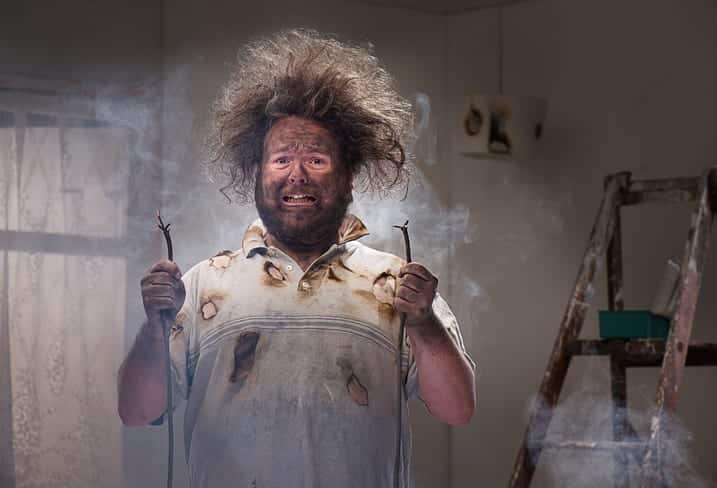
FAEQ: Frequently Asked Electrical Questions
Due in part to the plethora of DIY inspired home renovation shows and magazines on the market today, many homeowners get it into their heads that they can tackle any home repair. Unfortunately, many homeowners quickly become aware that home renovation projects are often more complicated than they seem. One of the most complicated and dangerous elements of home renovation that no homeowner should handle themselves is electrical work. Before you delve into your home electrical system, take a look at the FAEQ.
FAEQ #1: When do I need to call an electrician?
While we recommend hiring a professional and licensed electrician for any electrical work, there are a few other occasions when you would benefit from having a professional in your home. Call an electrician right away if:
- Your lights are flickering on & off, if they are frequently dim, or if you find yourself changing fuses all the time.
- You notice a burning smell coming from any of your electronics or outlets.
- You need additional power outlets installed or updated.
FAEQ #2: How much electrical work can I do by myself?
Legally, most states will let you do pretty much whatever you like in your home. However, tinkering with electrical work can be dangerous, especially if you don’t really know how they work. Changing a fuse and rewiring a socket is probably manageable. But, for anything else, just call an electrician. The danger and damage that you can do by messing around with your home electrical grid usually aren’t worth it the minimal financial savings. And of course, if you mess up, you’ll end up paying more to have everything repaired.
FAEQ #3: What are the different electrical outlet grades?
Outlets are organized into three main grades, homeowner grade, commercial grade, and hospital grade. Homeowner grade outlets are the least expensive and the most common but, they’ll generally wear out within five to ten years of use. Commercial grade is a better option as they cost more but will last around one hundred years! Hospital grade outlets are much more expensive and aren’t needed in the average home, as they’re built to be so fail-safe that they can stay on to power medical devices and so on.
FAEQ #4: What’s a “short” in my home electrical system?
A short is just another name for a short circuit. It essentially occurs when a wire carrying electrical current (usually the black wire) touches the grounded conductor (the white wire) or the equipment ground (the green or bare copper wire). A lot of heat builds up and can cause sparks. This is why your home’s circuit breakers will cut off your power if a short circuit occurs, so this excess heat doesn’t turn into a fire.
FAEQ #5: What’s the difference between a circuit breaker and a fuse?
Both circuit breakers and fuses have the same job – when there’s an issue with your electrical system, they’ll stop the flow of electricity. The difference is in their longevity. You’ll have to replace a tripped fuse, but a circuit breaker can be put back into use and doesn’t need replacing. This makes circuit breakers the more popular option these days.
FAEQ #6: Why do the light bulbs in one of my fixtures keep blowing?
It’s probably an issue with heat, vibration, or voltage. If the light fixture has an enclosed lens, then the bulb can easily get too hot and burn out the bulb. You need to remedy this, as the excess heat can increase the risk of catching fire. Make sure not to install light bulbs that are too big (you can check the label on the fixture to find out the right size). If the fixture is next to a door then the constant movement may cause the bulb, and its filament to vibrate, which will also cause the bulb to blow. If this is the problem, you can try using a halogen light bulb, which has a stronger filament and is less likely to break. Your lightbulbs may also be too low in voltage for your home. Many modern homes have voltages as high as 125 volts, whereas many common light bulbs are just 110 or 120 volts. The high voltage in your home will run them out quickly, so in this case, it can help to use a 130-volt bulb.
FAEQ #8: Is my home electrical system safe?
If you’re experiencing any of the problems we mentioned in FAEQ #1, then your home electrical system may be unsafe. Similarly, if your home is quite old then your electrical system may not be able to safely handle modern electronics. If you’re concerned about your home electrical system, the best thing to do is to get it checked out by a professional electrician.
Piper Electric Denver
Electrical systems can seem confusing but, hopefully, this FAEQ has answered some of your burning questions! If you have any more about your home electrical system, just get in touch with us here at Piper Electric. Providing top quality services to customers throughout Denver since 1983, we are the electrical contracting experts.
